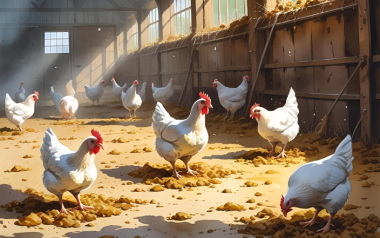Sources: Available upon request
24 Feb 2025
NCC petitions FDA to allow use of broiler eggs to mitigate shortage
The National Chicken Council (NCC) has recently submitted a petition to the Food and Drug Administration (FDA), urging the agency to permit the use of broiler eggs as a solution to the current egg shortage.
The National Chicken Council (NCC) has recently submitted a petition to the Food and Drug Administration (FDA), urging the agency to permit the use of broiler eggs as a solution to the current egg shortage. This proposal comes in response to the increasing demand for eggs and the declining production caused by various factors, including avian diseases and logistical challenges.
Background of the egg shortage
The egg industry has been facing significant challenges over the past few years. Outbreaks of avian influenza have severely impacted egg production, leading to a substantial decrease in the number of eggs available in the market. Additionally, the COVID-19 pandemic has disrupted supply chains, making it difficult for producers to meet the growing demand for eggs. As a result, consumers have experienced higher prices and limited availability of eggs.
What are broiler eggs?
Broiler eggs are produced by broiler chickens, which are primarily raised for meat production. Unlike traditional table eggs, broiler eggs are not typically used for human consumption due to differences in size, shell quality, and nutritional content. However, the NCC argues that with proper handling and regulation, broiler eggs can be a viable and safe alternative to traditional eggs.
The NCC’s proposal
The NCC’s petition to the FDA outlines the potential benefits of using broiler eggs to address the egg shortage. The proposal includes guidelines for quality control, handling, and distribution to ensure consumer safety. The NCC emphasizes that broiler eggs are readily available and could help stabilize the egg supply chain.
Arguments in favor
Proponents of the NCC’s proposal highlight several key points:
- Food safety: With appropriate measures in place, broiler eggs can be as safe for consumption as traditional eggs. The NCC suggests implementing strict quality control standards to ensure the safety of broiler eggs.
- Economic viability: Utilizing broiler eggs could reduce costs for producers and consumers. By tapping into an existing resource, the egg industry can mitigate the financial impact of the shortage.
- Supply chain impact: Allowing the use of broiler eggs could help balance the supply chain and reduce the strain on traditional egg producers. This approach could provide a more stable and reliable source of eggs for consumers.
Conclusion
The NCC’s petition to the FDA represents a proactive approach to addressing the egg shortage. By considering the use of broiler eggs, the industry can explore new avenues to ensure a steady supply of eggs for consumers. Collaboration between regulatory authorities and the egg industry will be crucial in implementing this solution effectively.








































